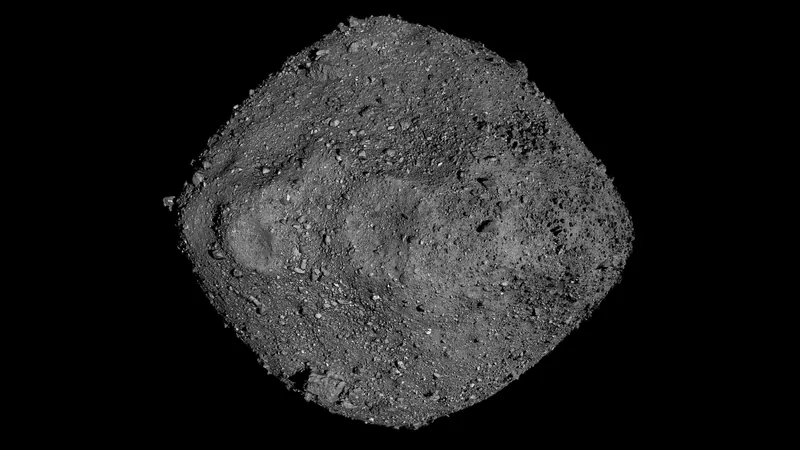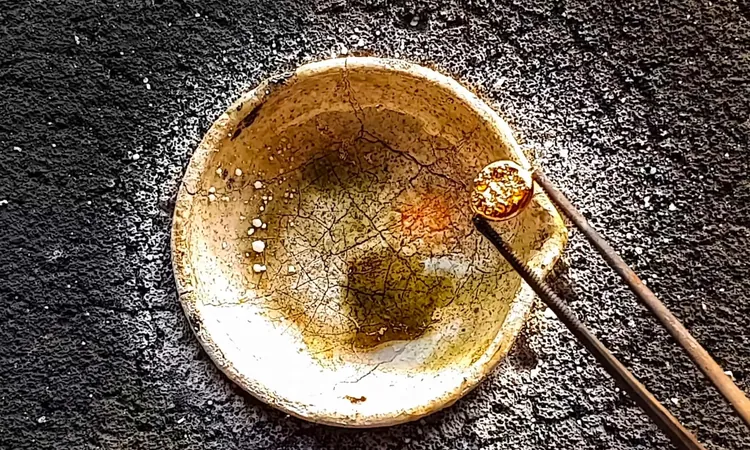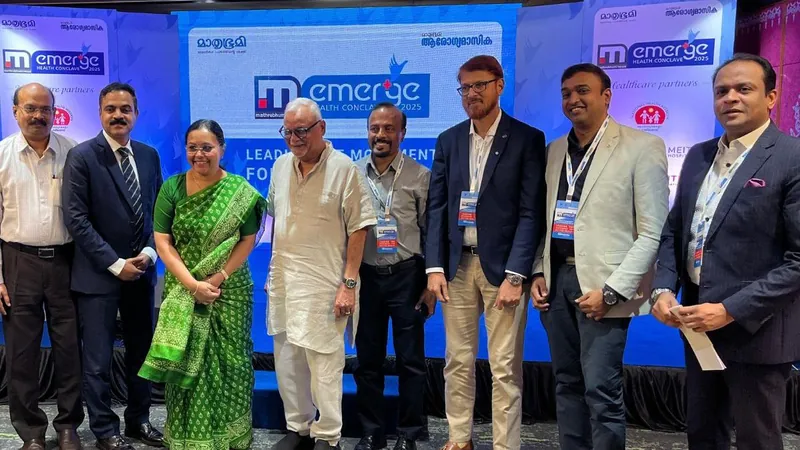
Asteroid Ryugu: The Cosmic Treasure Trove Older Than Earth!
2025-08-26
Author: Ming
Asteroid Ryugu is being hailed as one of the solar system's most valuable time capsules, unveiling secrets from a time long before our planet even existed.
In a groundbreaking study, scientists examining microscopic grains brought back by Japan's Hayabusa2 spacecraft have discovered that this tiny asteroid contains minerals that formed over 4.7 billion years ago, while Earth was still in its infancy. These minerals have been perfectly preserved, providing a rare glimpse into the conditions that shaped our solar system.
Employing cutting-edge X-ray imaging technology, researchers at Brookhaven National Laboratory delved deep into the chemical makeup of the asteroid samples. Their analysis uncovered a rich tapestry of minerals that hint at the asteroid's ancient parent body and its complex interactions with primordial fluids.
"These findings begin to unravel the story of the materials that composed the asteroid and the early conditions it experienced," the lab announced, emphasizing the significance of these samples in understanding the evolution of carbon-rich asteroids similar to Ryugu.
What Lies Beneath Ryugu?
As a carbonaceous near-Earth asteroid hailing from the cold outer solar system, Ryugu's parent body underwent a gentle heating process due to radioactive decay over 4.7 billion years ago. This resulted in the melting of ices like water and carbon dioxide, releasing fluids that percolated through the rock and catalyzed various chemical reactions, leaving behind a diverse suite of minerals that range from familiar Earth-like substances to entirely alien compositions.
Among the findings are intriguing carbonates like manganese-bearing dolomite and ankerite, alongside iron-rich minerals such as pyrrhotite and magnetite. Notably, researchers identified phosphates akin to those found in human teeth and bones, and a rare phosphide mineral not known to exist on Earth, alongside traces of selenium, sulfur, silicon, and calcium.
A Glimpse into Planetary Origins
The significant importance of Ryugu lies in its pristine preservation of early solar system conditions. Unlike Earth's ancient rocks that have been obliterated by tectonic shifts and erosion, Ryugu offers an unparalleled opportunity to examine the building blocks of life and the environment from which it might have risen.
Experts highlighted, "Earth is in constant flux, erasing critical chemical evidence of its origins. Asteroids like Ryugu hold onto these vital clues, preserving the early history of our solar system."
The Future of Asteroid Exploration
Asteroid sampling missions are gaining momentum as space agencies worldwide recognize their unparalleled scientific value. Following the successful retrieval of samples from Ryugu and the earlier Itokawa by Hayabusa2, NASA's OSIRIS-REx mission recently returned material from asteroid Bennu, aiming to analyze it with the same advanced X-ray techniques.
Comparing samples from Bennu and Ryugu could illuminate fundamental differences in the formation, evolution, and transportation of carbon-rich asteroids that may have carried life's essential ingredients across the nascent solar system.
Excitingly, more asteroid sampling projects are on the horizon, including JAXA's MMX mission targeting the Martian moon Phobos, along with future missions focused on metallic asteroids and even comets!


 Brasil (PT)
Brasil (PT)
 Canada (EN)
Canada (EN)
 Chile (ES)
Chile (ES)
 Česko (CS)
Česko (CS)
 대한민국 (KO)
대한민국 (KO)
 España (ES)
España (ES)
 France (FR)
France (FR)
 Hong Kong (EN)
Hong Kong (EN)
 Italia (IT)
Italia (IT)
 日本 (JA)
日本 (JA)
 Magyarország (HU)
Magyarország (HU)
 Norge (NO)
Norge (NO)
 Polska (PL)
Polska (PL)
 Schweiz (DE)
Schweiz (DE)
 Singapore (EN)
Singapore (EN)
 Sverige (SV)
Sverige (SV)
 Suomi (FI)
Suomi (FI)
 Türkiye (TR)
Türkiye (TR)
 الإمارات العربية المتحدة (AR)
الإمارات العربية المتحدة (AR)